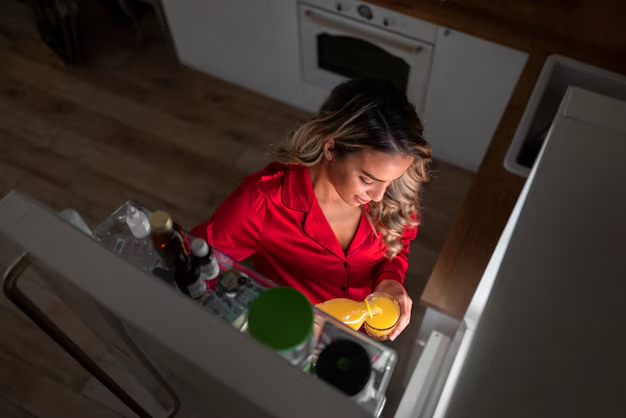How Long Do Pickled Eggs Last in the Refrigerator? Everything You Need to Know
Pickled eggs: a tangy treat that has been around for centuries, capturing the palates of people worldwide. The tart, salty snack not only comes with a burst of flavor but also boasts a noteworthy shelf life. However, understanding how long pickled eggs remain good in the refrigerator is crucial for enjoying them safely. In this guide, we’ll explore the ins and outs of pickled egg storage, along with useful information on maximizing their shelf-life.
🥚 What are Pickled Eggs?
Before diving into storage specifics, it’s helpful to know what pickled eggs are. Traditionally, they are hard-boiled eggs soaked in a solution of vinegar, water, and salt. This brine acts as a preservative, imparting a distinctive taste and extending the lifespan of the eggs compared to their fresh counterparts.
Why Are Pickled Eggs Popular?
- Long Shelf Life: Pickling is a preservation method that dates back to ancient times.
- Flavor Variety: You can add spices, herbs, or beet juice to create different pickling solutions.
- Snack Versatility: Great for snacking, adding to salads, or pairing with a charcuterie board.
🕰️ How Long Are Pickled Eggs Good For?
General Shelf Life
In the Refrigerator: Pickled eggs can last for about 3 to 4 months when stored in the refrigerator. This duration reflects optimal conditions where the eggs are kept continuously cold and in an airtight container.
Factors Affecting Shelf Life
Brine Composition: The ratio of vinegar to water influences how long the eggs remain fresh. A more acidic (higher vinegar content) solution usually extends shelf life.
Storage Conditions: Consistent refrigeration is key. Fluctuations in temperature can shorten shelf life.
Container Quality: Airtight jars maintain freshness better than open containers.
Quality of Eggs: Fresh, good-quality eggs tend to last longer when pickled.
How to Maximize Storage Time
- Use Sterilized Containers: Clean jars reduce bacteria and mold risks.
- Submerge Completely: Ensure eggs are fully covered by the brine to prevent spoilage.
- Label and Date: Helps track how long they’ve been stored, keeping you from forgetting older batches.
🥗 Ways to Enjoy Pickled Eggs
Pickled eggs can be a part of various culinary applications:
- Snacking: Enjoy them plain with a dash of salt or hot sauce.
- Salads: Slice and add to your favorite salads for a tangy twist.
- Garnish: Use them as a unique garnish for cocktails like a Bloody Mary.
🤔 Do Pickled Eggs Go Bad?
While pickled eggs have an extended shelf life, they are not immune to spoilage. Here’s how to identify if they’ve gone bad:
Signs of Spoilage
- Off Odor: An unpleasant smell is a strong indicator that the eggs should not be consumed.
- Discoloration: If the eggs change colors drastically, it could be a sign of spoilage.
- Texture: Sliminess or a mushy texture can indicate bacterial growth.
Safety Tip: If there are any doubts about the eggs’ freshness, it’s better to err on the side of caution and dispose of them.
🥒 The Science Behind Pickling
Pickling works due to the acidity of the vinegar in the brine. This acidic environment inhibits the growth of bacteria and other microorganisms that cause spoilage. The science is quite simple yet effective, making pickling a popular food preservation method worldwide.
💡 Tips for Perfect Pickled Eggs
Enhance your pickling game with these simple tips:
- Experiment with Flavors: Add spices like dill, garlic, or chili for different flavor profiles.
- Use Fresh Ingredients: High-quality vinegar, fresh eggs, and clean containers are essential.
- Patience Is a Virtue: Allow the eggs to marinate for at least a week for full flavor development.
📋 Pickled Egg Storage: Quick Reference
Here's a quick summary for easy reference:
- Refrigeration Required: Yes
- Estimated Shelf Life: 3 to 4 months
- Optimal Storage Condition: Airtight container, fully submerged in brine
- Bad Egg Indicators: Off smell, discoloration, slimy texture
🍽️ Creative Serving Ideas
- Deviled Pickled Eggs: Give a colorful and flavorful twist to a classic appetizer.
- Egg Salad Sandwiches: Chop pickled eggs for a zesty egg salad.
- Charcuterie Boards: Quartered pickled eggs add a pop of color and flavor.
Bonus: Homemade Pickling Recipe
For those interested in creating their batch of pickled eggs, here’s a simple recipe to get started:
Basic Pickling Brine
Ingredients:
- 1 cup vinegar
- 1 cup water
- 2 tablespoons salt
- 2 tablespoons sugar
- Optional spices: peppercorns, mustard seeds, garlic cloves
Instructions:
- Combine vinegar, water, salt, and sugar in a pot.
- Bring to a boil, stirring until the sugar and salt are dissolved.
- Pour over peeled hard-boiled eggs in a sterilized jar.
- Add optional spices for desired flavor.
- Seal jar and store in the refrigerator.
Tip: Allow eggs to marinate for at least a week before enjoying.
🌟 Final Thoughts
Knowing how long pickled eggs are good in the refrigerator ensures you maximize both their flavor and shelf life. By understanding the factors that affect their longevity and with these handy tips, you can enjoy this tangy treat safely and deliciously. Whether you make them at home or purchase ready-made varieties, pickled eggs are a versatile, long-lasting addition to any food lover's repertoire. So go ahead, relish in the uniquely vibrant flavors and the culinary heritage of pickled eggs!

